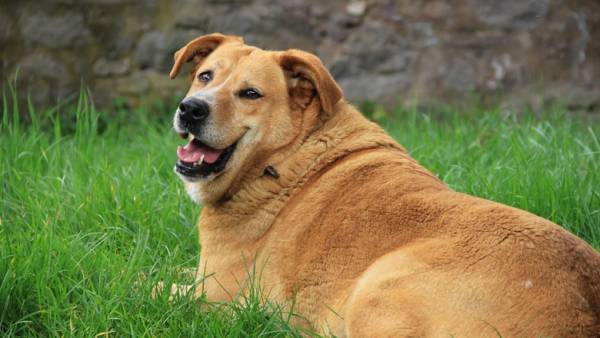In obese dogs found behavioral traits of people with obesity
Dogs with obesity behave very similar to people suffering from this disease, say European researchers at the Royal Society Open Science. These dogs eat more calories than animals of normal weight, and are more sensitive to reward. According to the authors, dogs with excess weight can be an excellent model for studying the causes and consequences of obesity.

As in humans, obesity in dogs in developed countries is becoming a serious problem. From 39 to 59 percent of dogs in European countries, Australia and the United States are obese. The main factors influencing the emergence of excess weight, researchers have named a genetic predisposition, castration of animals and the wrong diet. In addition, it was shown that the occurrence of excess weight is more common in hunting dogs and rarely have a guard and herding. But the behavior of dogs, which contributes to overeating and weight gain is still almost not been investigated. Meanwhile, studies of obese people show that overeating is associated with a weak focus of attention and inhibitory control, and cognitive biases, for example, love for unhealthy food and the idea that food can be a reward for “correct” behavior.
Hungarian and Italian ethology under the direction of Peter Pogaca (Péter Pongrácz) from the Budapest University decided to study the behavior of dogs, obese animals and normal weight. The study involved 43 dogs are predisposed to obesity gundogs — retrievers, Labradors and beagles, and 48 cattle dogs — border collie and Moody. In 16 of the animals were overweight. Scientists wanted to find out whether dogs are hunting breeds and dogs with overweight considered food reward and throw her faster than cattle dogs. The scientists also tested whether hunting dogs and dogs with excess weight are less selective than cattle and whether they have all what they offer or not.
The researchers conducted two series of experiments. In one of them dogs were offered to choose between two bowls with the contents unknown to them. One of them was always not too good for dogs carrots or an orange, and the contents of the second was varied: it was either empty, or it was pieces of dog food. In the beginning of the experiment the researcher has pointed a finger at the bowl of unloved food, and his assistant was holding the dog. Then the experimenter removed the hand, and the dog was released and she chose some of the bowls. The contents of the bowl showed the animal only when it makes a choice. With each participant was conducted on the 10 experiments, and if the dog is eating the same food seven or more times, the researchers believed that the animal prefers it. The researchers believed that dogs who are overweight may be less selective and will eat disliked food.

In the second experiment, the researchers “lied to” expectations of dogs. Animal is first trained, showing a bowl of food, standing in one corner of the room and an empty bowl in the other. The dog was led into the room where stood the bowl, let go, and watched how much time passed until the dog reaches to the bowl. Then the bowls have changed places, so that the animal, expecting to see the full bowl was empty before. During the experiment, the researchers put a bowl in the middle of the room, that is, in such position that the dog did not understand, whether a bowl food or not. The researchers believed that dogs with excess weight will be faster to run up to bowl, regardless of its content. On the other hand, they could exercise caution and not to run to the tank with an unknown reward.
It turned out that dogs who are overweight have behaved in the same way as people with this problem. They prefer high-calorie foods (p < 0,047), even when the experimenter pointed to the other bowl. So well behaved and beagles (hunting dogs) (p < 0,016). That is prone to obesity the animals did not eat indiscriminately, but were picky in choosing food. At the same time, animals who are overweight (R < 0.001) and hunting dogs (R < 0,015) less frequently than cattle, come to suspect the bowls in which food could be, and could not be.
scientists conclude that dogs can be a suitable model for the study of behavioral causes of obesity due to the similar behavior at the reaction of people who are overweight. People also often prefer high-calorie (sweet and fatty) foods and are hesitant to spend time on the task with an unknown reward.